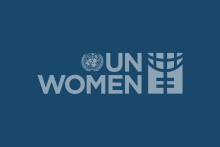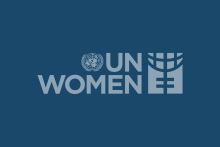This World AIDS Day, let’s step-up funding and support to vital women’s movements that are leading the way towards ending AIDS. Let’s put women and girls in all their diversity at the forefront of all our responses and pay particular attention to the environments that can hamper their effectiveness to lead.
Among the top demands of women and girls living with and affected by HIV, particularly young women, is their engagement in policy-making and programming. With a seat at the decision-making table, they can help ensure that the actions taken are gender-responsive, that funding is well allocated, and that HIV strategic plans and funding agreements include appropriate monitoring indicators. But for women and girls to engage meaningfully in the HIV response, they also need financial, technical, and mentorship support to build the necessary skills.
Statement: Communities must lead on ending AIDS — women’s voices must lead communities
There is mounting evidence that community leadership, particularly when it includes women’s organizing and leadership, improves HIV prevention and treatment outcomes. But the resources are not following the evidence. Community-led responses and organizing are often under-resourced, unremunerated, under-supported, and under-acknowledged. While over 31 per cent of all HIV resources were channelled through civil society organizations in 2012, this has fallen to 20 per cent in 2021. At times, community organizing is even under attack, particularly when such initiatives are led by women. An anti-rights backlash is gaining ground in many countries, including significant threats to sexual and reproductive health and rights, and undermining endeavours to promote women’s and girls’ leadership and community-led efforts.
Yet HIV infection continues to spread. Every week in 2022, 4,000 adolescent girls and young women worldwide acquired HIV. In sub-Saharan Africa, women and girls accounted for 63 per cent of all new HIV infections among people of all ages, and 77 per cent of new infections among young people aged 15-24. Women and girls are highly affected by HIV and AIDS not only because of their greater biological susceptibility to HIV transmission, but also because of their unequal cultural, social, and economic status. They play a pivotal role in caring for people living with HIV and facilitating treatment access and adherence. However, HIV care work is often unpaid, in turn exacerbating and perpetuating gender inequalities in employment, education and social activities.
UN Women proposes these solutions: invest in feminist, community-led HIV responses and movements. Invest in women’s and girls’ leadership and in their initiatives. Expand policy and civic spaces for their meaningful participation, support their essential work as community leaders, and listen to and incorporate their voices in decision-making. Let Women in Communities Lead.
When we support women’s community leadership and organizing, this will not only bring us more effective HIV responses, it will also move us towards overall greater gender equality and help dismantle the persisting barriers to ending AIDS, the ultimate goal we seek on this Day.

